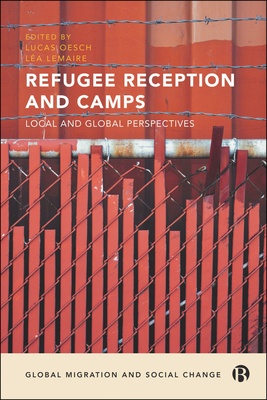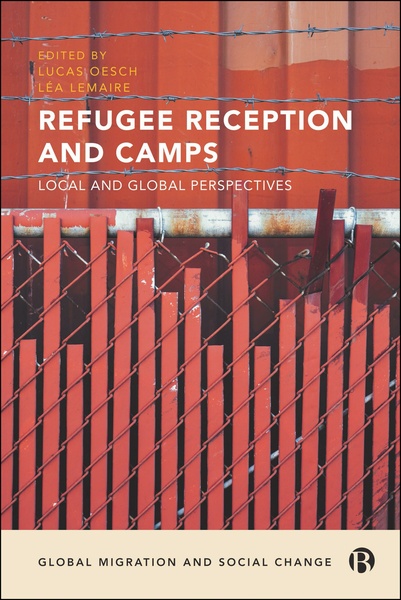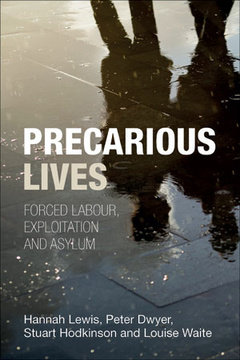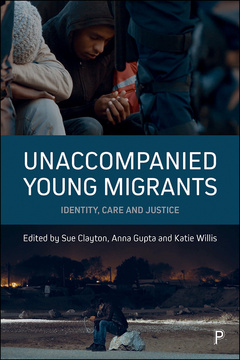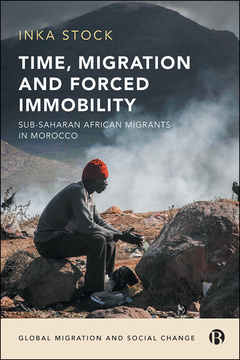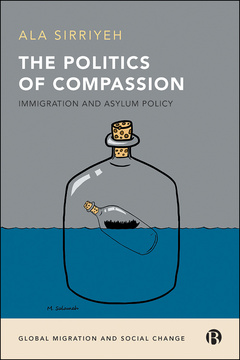ISBN
978-1529222838Dimensions
234 x 156 mmImprint
Bristol University PressISBN
978-1529222845Dimensions
234 x 156 mmImprint
Bristol University PressISBN
978-1529222852Dimensions
234 x 156 mmImprint
Bristol University PressLucas Oesch is Scientific Officer at Université de Neuchâtel. Previously, he was Principle Investigator for the REFUGOV research project on refugee reception in Luxembourg and Jordan.
Léa Lemaire is a postdoctoral researcher at the Université Libre de Bruxelles. Previously, she worked as a postdoctoral researcher at the University of Luxembourg where she oversaw the REFUGOV research project on refugee reception in Luxembourg and Jordan.
Introduction: A local and global perspective on refugee reception and camps - Lucas Oesch and Léa Lemaire
Setting the scene: Refugee reception and the challenge of ‘the local’ - Jonathan Darling
Part 1: Camps and their relations with cities
Between the exceptional and the ordinary: The local turn and the camp in South Asia - Ankur data
The local governance of informal refugee camps in Lebanon – from Palestinian ‘gatherings’ to Syrian ‘settlements’ - Nora Stel
The governance of migrant reception and more-than-local stories in a Costa Rican border town - Elena Reichl and Nanneke Winters
Unrelated spaces? Camps and cities in Jordan and Luxembourg - Lucas Oesch & Léa Lemaire
Carceral urbanism and spaces of non-care: Australia’s use of alternative places of detention, 2002-2022 - Andrew Burridge
Part 2: Camps and the provision of care
The Rohingya camp jurisdiction puzzle: How fractured jurisdiction impacts humanitarian aid provision by local, international and governmental actors - Yasmin Khan
Understanding safe houses: Serbia’s geographies of reception and care of unaccompanied - Jessica Collins and Claudio Minca
From barbed wire to welcome signs: The US military both welcomes and deters people seeking refuge in the United States - Erin Barbato
‘Bienvenue dans La Bulle’: Politics and paradoxes in an experimental dispositif of migration reception in Paris - Melora Koepke
Who cares? Practices and meanings of care in refugee camps around the world. From Moria to Kakuma - Claudia Böhme
Part 3: Camps as economic resources
How do camps affect cities? The political economy of refugee camps and Arua, Uganda - Evan Easton‐Calabria
Humanitarian governance as development: Protracted refugee camps as drivers of investment and innovation in Kenya and Jordan - Bram J. Jansen
Migration governance and uneven development? Economic actors, practices and geographies of migrant camps in Greece - Panos Hatziprokopiou
Forced migration as urban development: Berlin’s accommodation approach and the development of sheltering as the new urban norm - René Kreichauf
Conclusion: Future perspectives in research on and practice of refugee reception and camps from the local to the global - Lucas Oesch and Léa Lemaire







